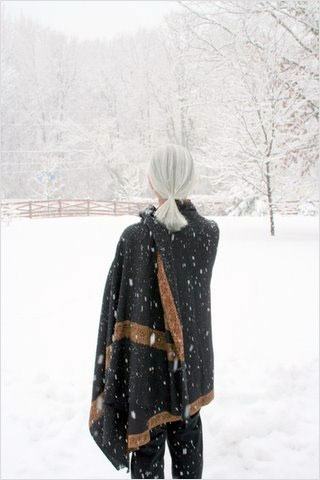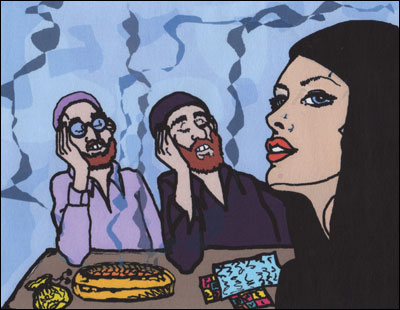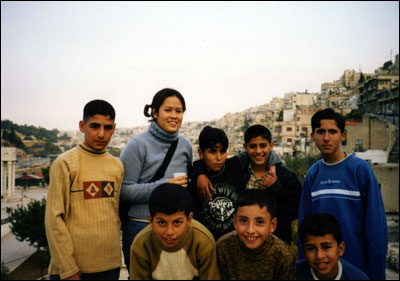
She was a wise woman.
Heads turned as she pushed her metal shopping cart down supermarket aisles. Strangers at stop lights turned to see if she was wearing a fake attachable halo like the ones children might don with their Halloween angel costumes. Even the kindergarteners she taught noticed — and gave her silent reverent bows as she walked by.
The wise woman’s mane of pure, majestic white hair was unsettling.
People rarely dared to speak openly about it.
Women over 30 were the only ones who blurted out their fears in little bursts of self-conscious comments.
“I wish my hair were striking white. Not this awful, lifeless ash,” they said mournfully, always lifting a portion of their own hair and letting it fall back to their scalps like washed-out pieces of dead seaweed.
“You’re so lucky. Once you dye your hair, you can’t stop. But I guess with hair like yours, you’ve never had to dye it, have you?”
The wise woman would shake her head silently. Never.
“I can’t believe that. I remember when I got my first gray hair, I was devastated.”
She knew that even if she tried to say something to help them acknowledge their inner light, they would not hear it.
So she stayed quiet, as the women, wrapped up in the tragedy of aging, prattled on about their fear of becoming obsolete, of losing their husbands to younger women with thick, vibrant, undyed hair that tumbled down their backs.
“Just like the ones in the Pantene Pro-V commercials — you know which ones I mean?”
They sputtered about feeling threatened by airbrushed TV goddesses, whose sexiness and confidence seemed to flow into their bouncy hair.
The women would eventually finish their monologues and drift away, muttering about models and the latest haircuts on “Grey’s Anatomy.”
Never once really seeing the woman of wisdom’s luminous white hair.
If they had looked a little longer, they might have glimpsed the icy tips of the highest mountains piercing crystal blue skies.
If they had stilled their minds for a moment, they’d catch a soft aura and glimpse Buddha sitting under the Bodhi tree and awakening.
They might feel the gentle warmth of a church candle between their palms. Or a pool of tranquility deep inside their bellies, like an untouched lake in a forgotten grove.
Instead, the women walked on without looking back.
Without even a silent kindergarten bow.
- Follow us on Twitter: @inthefray
- Comment on stories or like us on Facebook
- Subscribe to our free email newsletter
- Send us your writing, photography, or artwork
- Republish our Creative Commons-licensed content




